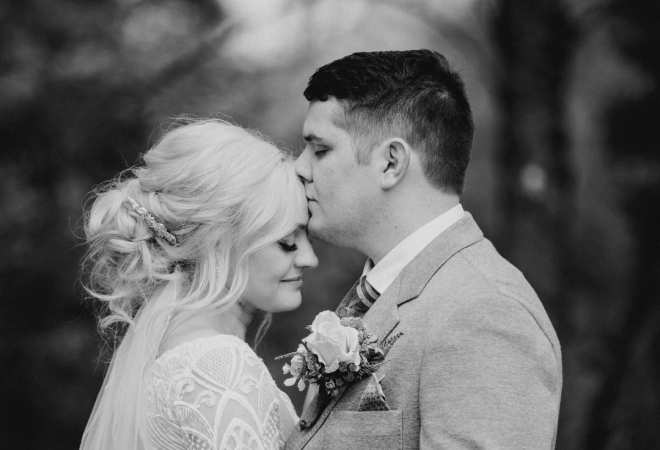Learning about cinematography may persuade you to think differently about your wedding budget.
NUMBERS
According to a recent study (1) by The Knot (Market Intelligence), wedding “videography” comprised less than 4% of the overall wedding budget for U.S. couples getting married in 2009 (data for 2010 has not been made available yet). Comparing this percentage with other vendors in the wedding industry such as caterers (33%), florists (7%), jewelers (21%), photographers (9%), and venues (45%), and reception bands (12%), it’s easy to see that “videography” is near the bottom of the list.

FINAL CUT
Even if wedding “videography” is lucky enough to make a bride’s final cut, oftentimes it’s one of the last priorities on her checklist; and as the numbers show, for the vast majority it’s left out of the budget entirely. In fact, it’s estimated that less than 25% of couples choose to invest in wedding “videography” to have the most important day of their life captured on film.

QUOTATIONS
You may have noticed that I’ve been using “videography” in quotations. For those who meet Thread & Film for the first time and don’t know anything about us, we often hear things such as...
“Oh, cool - you do wedding ‘videography?’ ”
Or “Yeah, we’re considering hiring a ‘videographer’ to film our wedding ceremony.”
Or “We are interested in wedding ‘videography,’ but don’t really have room in our budget for it.”
or even “We are doing photography, but aren’t sure if we want ‘videography’ too.”
Not only is “videography” a familiar word, but it’s the word everybody in the wedding industry uses - advertisers, vendors, and prospective clients alike. Because it is important to understand context and speak the language of our customers (and those we work alongside), we feel that at times, it is both necessary and appropriate to use the word. However, throughout the past 7 years that we’ve been filming weddings, we’ve come to understand that differences between “videography” and “cinematography” are rapidly surfacing.
And we think that somebody needs to start speaking up about it.
To clarify, we don't believe that “videography” itself is bad. Rather, we believe that the differences are prominent enough that for us, they’re impossible to ignore. And because we consider what we’re doing at Thread & Film to be wedding “cinematography” instead of “videography,” it’s necessary for us to qualify this in some way, at least in the early part of the conversation. Thus, “videography” in quotations.
We’re fully convinced that it’s a worthwhile effort to be intentionally discussing what these differences are whenever and wherever appropriate. However, what we’re learning is proving to be a challenging line to walk. The effort of educating, defining and reshaping the perspective of competitors, other vendors and prospective clients in a way that is both respectful and non-threatening has not been easy. But for us, this has always been true - we love the challenge and are thrilled to engage in this conversation because we truly believe that at the end of the day, we are providing value to those willing to listen.
So far, we’ve seen some pretty ground-breaking things happen for those joining the conversation. The works of certain wedding cinematographers are redefining a couple’s “wedding experience” in such a way that couples who know about it first-hand are talking about it like crazy and brides that catch wind of it are starting to reevaluate their budgets, making wedding cinematography a high priority.
The discouraging thing? Hardly anybody knows that this conversation even exists in the first place.

VIDEOGRAPHY VS. CINEMATOGRAPHY
We believe there’s a difference.
1. Brand. Perhaps the greatest difference between videography and cinematography lies in branding. In the past, brand used to be something else, like a logo or a design. Today those things are just shadows of a brand. Logo and design are important, but they are not what defines a brand. This perspective comes from Seth Godin, arguably the world’s most well-respected marketer, as he defined brand in 2009 on his blog (2). In his definition, he suggests that, today a brand has evolved into “a set of expectations, memories, stories, and relationships that, taken together, account for a consumer’s decision to choose one product or service over another.” So when you think brand, we encourage you to not just think about logo, product and service, but also about relationships and experience. We’d even go further, risking to say that a brand is not just about a story (as Seth suggests above), but the story around the story - and if the new definition of brand is true, this involves you. If you see a cinematographer’s work and it draws out authentic emotion, stirs memory or creates valuable experiences in a remarkable way, we think you’ve landed on a brand worth paying attention to.
2. Intentionality. Cinematographers are intentional about many things that videographers are not. Look for this difference this in the design of their website, the professionalism of their approach, their authenticity when interacting, their personality when communicating (both in print and online), the pricing structure of their packages and extras and the attention to detail while filming and editing, and their willingness to understand you.
3. Approach. Cinematographers understand they are not just providing a product and a service, but a relationship and an experience. They are lifelong learners that experiment with new techniques and adopt new technologies - not because they are popular, but because they understand that doing this ultimately provides value to their clients and in turn, their brand. Cinematographers are students of film, audio, lighting, and color theory. Videographers may be aware of these general concepts, but don’t study and apply these theories to the extent that cinematographers do.
4. Style. Cinematographers are storytellers to the core. Videographers might have some storytelling abilities but this quality doesn’t permeate within their workflow, let alone bleed from their bones. This is why it’s a common thing to see videographers creating montages, while cinematographers are creating movies (or feature films). The storytelling experience of a movie is rich and dynamic, integrating video, audio, and titling in such a way that it draws on your emotions to the extent that is hard to explain – but holds your attention from start to finish. In fact, we’ve seen people sit through the work of cinematographers without even knowing a single person in the film. Cinematographers create something you actually want to watch - more than just on your anniversary.
Cinematographers don’t just show up to document an event. They come alongside you (sometimes even several months before the wedding) to understand, engage, and capture that dynamic mix of elements, emotions and moments surrounding the most important day of your life.
Then, stitching those various threads together during the editorial process, they create wedding films that are not only hopeful of being remarkable and timeless, but a true reflection of the couples that star in them. In the same way a bride wants her dress to be a reflection of her beauty, personality, and style, your wedding film should reflect those various threads, and the storytelling style of a cinematographer lends itself perfectly for this.
5. Tools and Technology. Cinematographers are using the same (and in some cases, similar) tools and technology, such as LED light panels, that folks in the film industry are using to create the ads you watch on TV, the shows you follow online, and the movies you see in the theater. Videographers are using the same tools and technology that you may find in a consumer camera kit or in the studio of a high school video production department. A cinematographer’s toolset includes HD cameras, high-quality tripods, dollies, camera stabilization rigs (such as a Steadicam or shoulder-mounted brace), jibs, lighting kits, wireless audio equipment, a tapeless workflow, and professional editing, motion graphics, DVD authoring, and color correction software, to name a few.
6. Remarkable. Something that is remarkable is worth making a remark about. It’s worth sharing with others, even when there’s nothing in it for them. It’s possible for a brand to do things that are hopeful of being remarkable, but impossible for them to be remarkable by themselves because this is ultimately determined by their customers. If couples aren’t raving about how remarkable their experience was with a particular brand, recommending it to their family and friends on the phone, email, a blog, Facebook, or Twitter and if other vendors in the industry aren’t referring the couples they’re working with to the other vendors they think have remarkable brands, then maybe the brand isn’t remarkable enough to place value in.

When was the last time you heard someone (anyone - a bride, groom, parent, grandparent, family member, friend, or even an advertiser or another vendor) rave about wedding “videography”?
A delayed response (or no response at all) may be one of the reasons why approximately 75% of couples getting married this year will exclude wedding videography from their budget.
We believe cinematography evokes a different response.
Seeing Is Believing.
DEMO REEL
Thread & Film / Demo Reel / January 2011 from Thread & Film on Vimeo
TRAILER
Elizabeth & Ryan / Trailer from Thread & Film on Vimeo
(1) 2009 Real Weddings Survey, The Knot Market Intelligence http://www.theknotinc.com/press-releases-home/2010-pressreleases/
2010-02-17-real-weddings-survey-results-2009.aspx
(2) Seth Godin's Blog http://sethgodin.typepad.com/seths_blog/2009/12/define-brand.html








Join the conversation
Log in or register to post comments